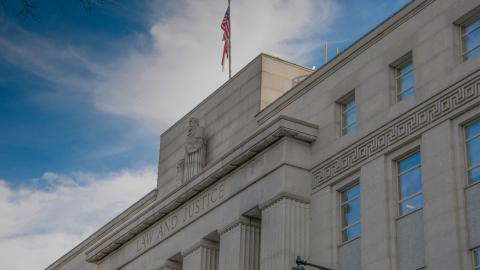FOR IMMEDIATE RELEASE: Feb. 4, 2022
Durham, N.C. (Feb. 4, 2022) — In a 4-3 decision, North Carolina’s Supreme Court threw out the state’s congressional and legislative maps late Friday, calling the maps “unconstitutional beyond a reasonable doubt” and requiring lawmakers to redraw maps that avoid diluting Black representation.
Click here to read the full 20-page order. A full opinion is forthcoming.
Speaking on behalf of plaintiff Common Cause, Southern Coalition for Social Justice Co-Executive Director and Chief Counsel for Voting Rights Allison Riggs, who, alongside pro bono counsel Hogan Lovells applauded the ruling, calling it a vindication for Black voters most harmed by the state’s extreme partisan gerrymanders.
“Today’s ruling is an unequivocal win for North Carolina’s Black voters who were most harmed by this extreme partisan gerrymander,” said Riggs. “At every level, North Carolina’s GOP leadership diluted representation of communities of color to entrench their own political power in ways that were both obvious and egregious. The state’s highest court has now said that all North Carolinians deserve better and is demanding that all lawmakers do better.”
Bob Phillips, Executive Director of Common Cause North Carolina, joined Riggs in celebrating the Court’s decision.
“Today’s ruling is a historic victory for the people of North Carolina. The NC Supreme Court has now set a clear precedent that partisan gerrymandering violates our state’s constitution. We celebrate this momentous win for our democracy. But the fight for fair maps is not over. Now we must ensure that new districts are drawn free from racist or partisan gerrymandering, with complete transparency and robust public input, keeping communities together and protecting the right of all North Carolinians to have a voice in choosing their representatives. We’ll continue to be vigilant in every step of the map redraw.”
Hogan Lovells partner Tom Boer added:
“Today’s ruling from the North Carolina Supreme Court affirms the central tenant of American democracy that we sought to defend on behalf of all voters in North Carolina, namely that every individual’s vote — regardless of race or political belief — must count equally.”
The ruling requires lawmakers to first assess whether “racially polarized voting is legally sufficient in any area of the state such that Section 2 of the Voting Rights Act requires the drawing of a district to avoid diluting the voting strength of African American voters.” The General Assembly must now draw and submit new plans to the Wake County Superior Court by 5 p.m. on February 18, 2022, and comments on the submitted maps must be filed with the court by 5 p.m. on February 21, 2022. The trial court will then decide on approval of the submitted plans by 5 p.m. on February 23, 2022.
MEDIA CONTACTS:
Sailor Jones, sailor@scsj.org, 919-260-5906; SCSJ
Gino Nuzzolillo, gino@scsj.org, 402-415-4763; SCSJ
Melissa Boughton, melissa@scsj.org, 830-481-6901, SCSJ
Bryan Warner, BWarner@commoncause.org, 919-599-7541; Common Cause NC
Ritchenya A. Dodd, ritchenya.dodd@hoganlovells.com, 212-918-6155; Hogan Lovells
###
The Southern Coalition for Social Justice, founded in 2007, partners with communities of color and economically disadvantaged communities in the South to defend and advance their political, social, and economic rights through the combination of legal advocacy, research, organizing, and communications. Learn more at southerncoalition.org and follow our work on Twitter, Facebook, and Instagram.
Common Cause is a nonpartisan, grassroots organization dedicated to upholding the core values of American democracy. We work to create open, honest, and accountable government that serves the public interest; promote equal rights, opportunity, and representation for all; and empower all people to make their voices heard in the political process.
Global law firm Hogan Lovells has a long tradition of supporting ground-breaking social developments, focusing on access to justice and the rule of law. As lawyers we recognize this commitment is part of our professional practice and collectively we spend 150,000+ pro bono hours per year on work to achieve lasting impact for others.

